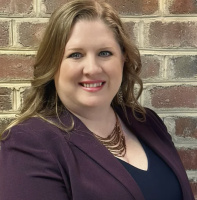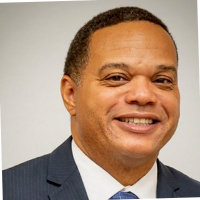 Bear Creek DUI-DWI Lawyers, North Carolina
Bear Creek DUI-DWI Lawyers, North Carolina
Sponsored Law Firm
-
 x
x

Click For More Info:
-
Keches Law Group
122 Dean Street Taunton, MA 02780» view mapSocial Security, Personal Injury, Workers Comp. Protecting Your Rights
Our team of experienced personal injury attorneys has over 130 years of combined experience representing individuals and families injured due to the negligence of others.
800-713-8650
Sponsored Lawyers
1-10 of 19 matches
Criminal, DUI-DWI, Felony, White Collar Crime, Misdemeanor
Attorney Lindsey D. Granados is an experienced trial lawyer and seasoned litigator who advocates tirelessly for her clients. She truly cares for the well-being of her clients, and her compassion and desire to see justice in action motivates her to seek the best possible outcome in each case. Over the course of her career, Lindsey has tried hundreds of District Court cases—infractions, misdemeanors of every variety, DWIs—and numerous high-level felony criminal jury trials to verdict in Superior Court. Lindsey Granados formed Granados Law Group, PLLC in January 2023 when her law partner, Wiley Nickel, was elected to serve North Carolina in Congress. Although our name and location have changed, GLG remains committed to providing high-quality legal services to our clients! Prior to the name change, Lindsey Granados was recently named Partner in the firm of Nickel & Granados, PLLC. When Lindsey Granados initially joined The Law Offices of Wiley Nickel, PLLC in 2020, she expanded the firm’s areas of representation to include high-level felonies like drug offenses/trafficking, sex offenses, felony hit & run, habitual felon offenses, felony domestic violence offenses and child abuse offenses, federal crimes, and sex offender registry termination petitions, just to name a few. Presently, Granados Law Group routinely handles ALL criminal matters from the smallest traffic tickets to DWIs, drug charges, assaults, to robbery, sex crimes, and even murder charges. If you have any kind of criminal case, Granados Law Group and its team of experienced litigators and staff can help you. The firm also takes great pride in our statewide expungement practice, and each year, our firm helps hundreds of individuals reclaim their criminal records from past mistakes. Ms. Granados was born and raised in Seminole, Oklahoma. She graduated from Oklahoma Baptist University, located in Shawnee, Oklahoma with a Bachelor’s degree in Political Science, with honors, magna cum laude. Lindsey then moved halfway across the country to attend law school at Stetson University College of Law in Gulfport, Florida. Desiring to be closer to some extended family in the area, Lindsey moved directly to North Carolina the day after graduating from law school, and she can’t imagine ever leaving her adopted home state of North Carolina. Lindsey is married to her college sweetheart, Ian, and they are the proud parents of a soon-to-be teenager. The Granados family attends Raleigh Chinese Christian Church, located in Cary, where Lindsey is very active and involved in Sunday school and the church music ministry, where she enjoys singing and helping lead worship in the church’s praise band. Regarding professional engagement, Ms. Granados presently serves on the Boards of the Wake Women Attorneys and the Wake County Academy of Criminal Trial Lawyers, having also previously been elected President of both organizations. For many years, Ms. Granados has also been involved with the Wake County Bar Association CLE Committee and now serves on the Grievance Committee as well. Previously, Lindsey volunteered as the co-chair of the NCAJ High School Mock Trial Competition for over a decade, running a regional competition for high school students learning about our system of laws. In 2021, Lindsey was appointed by then Chief Justice Cheri Beasley to serve on the North Carolina Sentencing Policy Advisory Commission (SPAC) as a representative of the North Carolina Advocates for Justice, representing the criminal defense attorney voices from across the State in a multi-disciplinary commission that advises the State Legislature on the impact of changes to sentencing laws. Commissioner Granados has been subsequently re-appointed by Chief Justice Paul Newby to continue serving in this role for a 3rd term with the SPAC, which meets quarterly. As North Carolina courts transtioned to eCourts, Ms. Granados was invited to serve on the eCourts implementation team for Wake County, and she provided valuable input on behalf of the local and statewide criminal defense bar regarding the Pilot County rollout, which led to the North Carolina Advocates for Justice (NCAJ) awarding Lindsey the "Ebbie Award" in 2023 for her service to the organization updating members as to the continual changes that were taking place. Most recently, Ms. Granados was nominated to serve on the Board of Trustees for the NCAJ, and she is excited to participate and help steer the direction of the affinity bar organization moving forward. In addition to her extensive experience defending people accused of crimes, Ms. Granados also previously served as an Assistant District Attorney in Wake County. Lindsey’s experience on both sides of the aisle gives her a well-rounded perspective when she approaches a case, and she utilizes her relationships in the courthouse to advocate tirelessly for her clients’ rights. When you are charged with a criminal offense, you need an attorney who will walk with you every step of the way, demystifying the criminal court process, which can often be confusing, overwhelming, and even scary. More importantly, you deserve to have a lawyer who will fight for your rights and defend you well. Call Granados Law Group at 919=650-2851 to set up a consultation with Attorney Lindsey D. Granados today!
(more)Criminal, Divorce & Family Law, DUI-DWI
Kathy has been practicing law since 1992, and is the founder of Kathy S. Williams P.L.L.C. Born to a military U.S. family in Okinawa, Japan, she grew up as the second child in a household with three brothers.She graduated from East Carolina University in Greenville, North Carolina in 1987. While she was there, she gained a commission as a Second Lieutenant in the Army Reserves.She then went on to law school at Wake Forest School of Law in Winston-Salem, NC. After a one-year interruption in her studies for active duty service in Desert Shield and Desert Storm in 1990-1991, she graduated from Wake Forest School of Law in 1992. She was licensed as an attorney in August 1992.After a Position as Assistant Public Defender in Gastonia, she moved to Durham in 1994, and served as an Assistant Public Defender here for two years. She then left the Public Defender's office to open the Law Office of Kathy Williams in April of 1996. Also in 1996, she resigned from the Army Reserves after serving nine years on active duty and in the Reserves, and having attained the rank of Captain.In the summer of 1999, she married Thurman Richardson, Jr. and changed her name from Kathy S. Williams to Kathy Williams Richardson.
(more)DUI-DWI, Criminal, Car Accident
Lawrence Thomas McPhail is a retired Troop Commander for the North Carolina State Highway Patrol, having served for twenty-eight years. He also served proudly in the U.S. Army Reserve. McPhail attended North Carolina Central University as an undergraduate, majoring in Criminal Justice and graduating with summa cum laude honors in 2007. In 2011, he graduated from North Carolina Central University School of Law Evening Program and earned his Jurist Doctorate. Subsequently, he passed the North Carolina State Bar and received his law license. McPhail is trained and knowledgeable in Advanced Roadside Impaired Driving Enforcement, Driving While Impaired Detection, Standardized Field Sobriety Test (SFST), and the Intox EC/IR II, an automated breath testing instrument used in North Carolina to detect and measure alcohol in a person’s breath. He has also received training in the operation of the Radar and Lidar instrument used for speed enforcement in North Carolina. Due to his training and his supervisory role over State Troopers he is aware of what to look for on traffic tickets and what is required for a law enforcement officer to conduct an investigatory traffic stop.
(more)


 Sean Flaherty Taunton, MA
Sean Flaherty Taunton, MA AboutKeches Law Group
AboutKeches Law Group Practice AreasExpertise
Practice AreasExpertise




